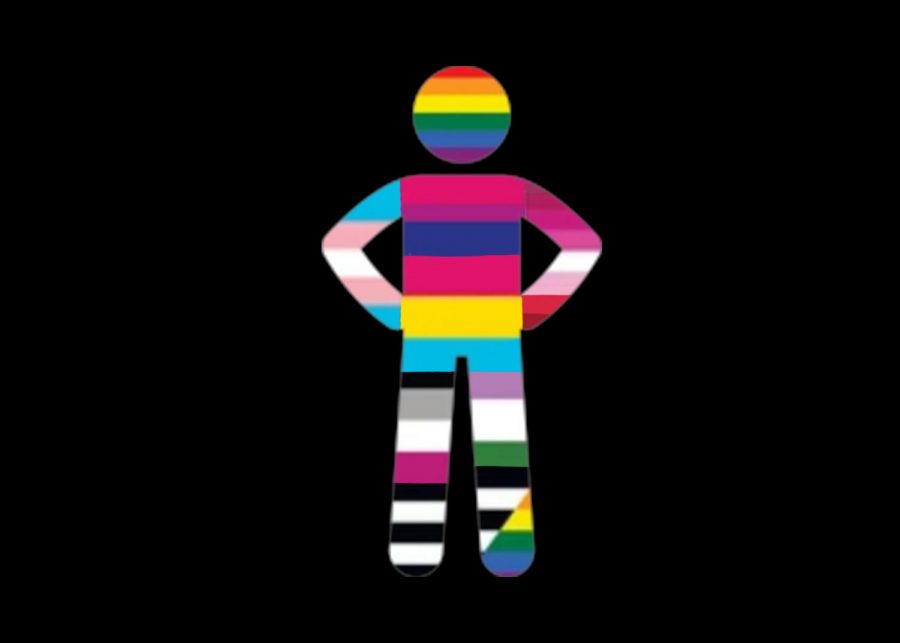What It Is Like Being A Part Of The LGBTQ+ Community
Experiences Within the LGBTQ+ Vary Widely Across The Spectrum
Students share their experiences within the LGBTQ+ community.
April 14, 2021
Being a part of the lesbian, gay, bisexual, transgender, queer and intersex community brings a variety of challenges and benefits for teenagers.
Sophomore, Luzneida Navarro said, “Man being part of the LGBTQ + community has been living hell at times. I’ve gotten offended and talked about just for liking a girl by my own family. Being Hispanic has been a big factor for me. Hispanic families are known for their strong religious beliefs, as we know homosexuality is something seemed as the devils work or as a sin. My parents weren’t happy they were, disgusted and offended by my ‘shameful’ ways of living.”
Some of them feel it is safer to stay to themselves and not tell anybody that they are a part of the LGBTQI+ community. Many people have hurt themselves because they face bigotry. The amount of time other kids has received hate, this makes other kids not want to come out.
Public Acceptance
The guardian states, “Even in some more conservative regions homosexual act between teenage boys is seen as the ‘safer’ way of exploring sexuality; so long they get married at their adulthood, no one cares much. But it’s a closet! The moment someone decides to leave that they’ll face ‘death’, they fear.”
People are afraid to apply to jobs, go out, and dress a certain way, because it affects their lives. Some people feel like ‘those people’ are not needed. Not just one place, but this has been a problem all over the world. Members will get stares in public for doing something everyone else does. Since they are a different sexuality then the other people, they get treated differently.
“One trans participant in a research study spends time with her children at the weekends. They’re a close family unit, but she can’t help but be distracted by stares from others in restaurants. She steals herself against this and hopes the kids don’t notice.” The guardian states.
Recently, more and more states have started to permit gay marriages. Although, there are still some states who does not accept gay marriages. Many people feel it is not “natural”.
Media
Internet Student Services states, “As of June 2015, all states in the U.S. permit gay marriage, although cultural acceptance of gay marriage varies widely from region to region, and person to person.”
Adults and teenagers are mainly people who have an issue with others being a member of this community. LGBTQ community has different politic opinions; some people think they shouldn’t have a right to vote, and others think they need to go to church to “help them make the right decision.”
Another problem has been with their nationality. On top of their sexuality some of these people face discrimination because of their own race or within their own race. Whether there, Black, Hispanic, Asian, etc. Some businesses won’t let them apply to work there or even come shop in their store because of their race and sexuality.
“LGBTQ issues have emerged as a major social and political issue nationally. However, many rights and benefits afforded to LGBTQ individuals, as well as openness toward sexual diversity, still vary in the U.S. depending on geographical location, local culture, and individual backgrounds.” Internet Student Services states.
Members of this community get treated unfairly for what they do with their life and the decisions they make. Social media and popular culture are what they get hate for the most. Online activism is a huge thing to where addresses get leaked, death threats, and they are told things nobody wants to hear.
“In a country where the whole concept of sex and sexuality is a taboo, they are learning to navigate the ways by highlighting ‘love’ as the center of all, as a human right that can’t be denied, hoping for better, and may be ‘faster’, acceptance… some day!” The guardian states.
When heterosexual people are at work, they don’t know if they should come out to them because they don’t want it to affect their job lives. Or if they are having a conversation with the costumer, depending on what job they work at.
“LGBT people calculate whether they should come out at work; 30% aren’t open about their sexuality with senior colleagues, and 57% aren’t open with customers or clients. Casual Monday morning chats about what you did at the weekend become a minefield. One of my participants, a community health practitioner, loves chatting with her patients: it’s a big part of her job. But she’s always careful not to mention her girlfriend, for fear of making patients uncomfortable.” The conversation states.




